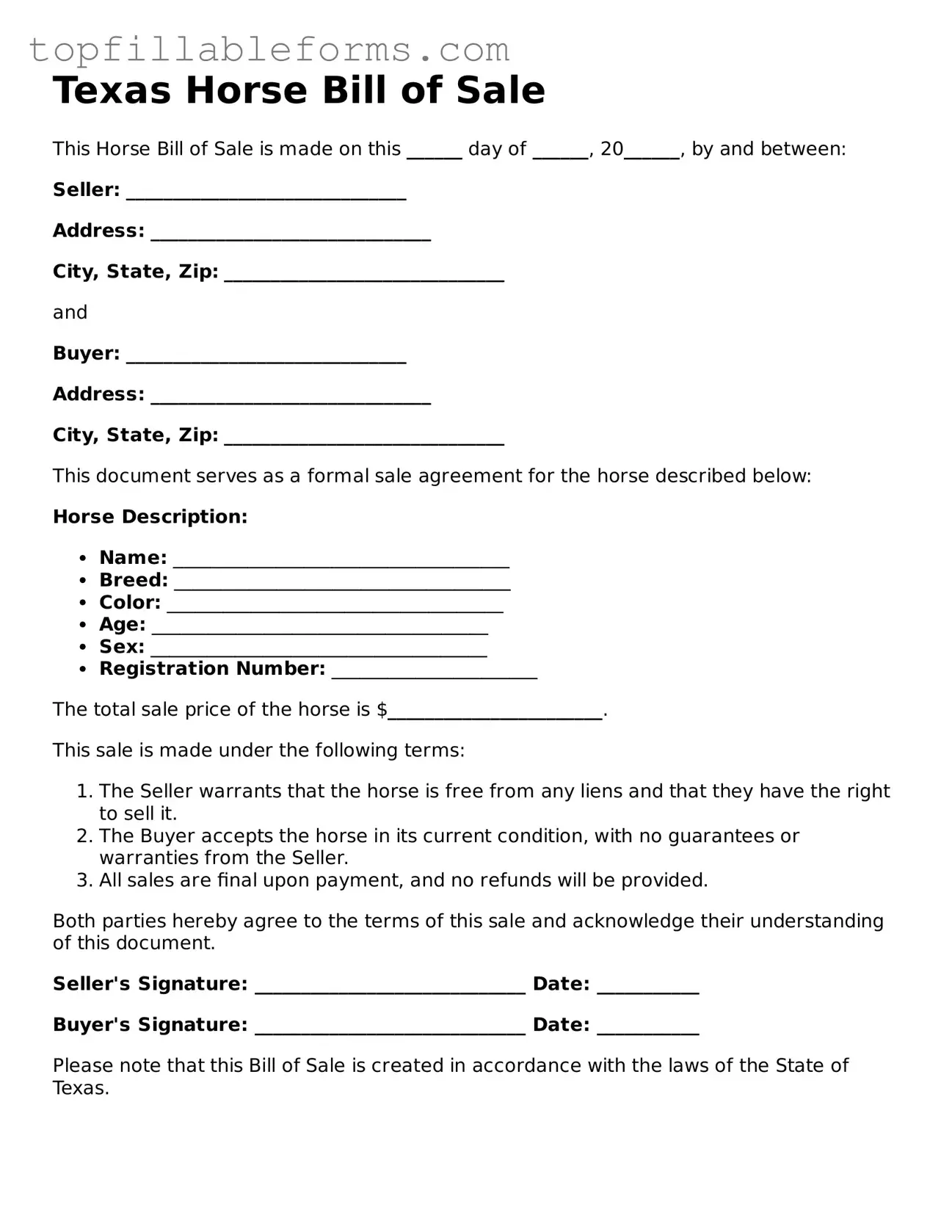Attorney-Verified Horse Bill of Sale Template for Texas
The Texas Horse Bill of Sale form is a legal document used to transfer ownership of a horse from one party to another. This form outlines essential details about the horse, including its description, sale price, and any warranties provided by the seller. Understanding this form is crucial for both buyers and sellers to ensure a smooth transaction and to protect their rights.
Open Horse Bill of Sale Editor Here

Attorney-Verified Horse Bill of Sale Template for Texas
Open Horse Bill of Sale Editor Here
Finish the form now and be done
Finish your Horse Bill of Sale online by editing, saving, and downloading fast.
Open Horse Bill of Sale Editor Here
or
▼ PDF File
